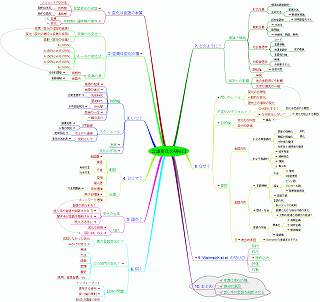[2010-07-14-1]と[2013-08-26-1]に引き続き,言語変化の説明原理としての endogeny と exogeny (contact-based) の問題を取り上げる.この論争は,endogeny を支持する保守派と exogeny の重要性を説く革新派の間で繰り広げられている.前者は Lass ([2013-08-26-1]) や Martinet (「#1015. 社会の変化と言語の変化の因果関係は追究できるか?」 [2012-02-06-1]) などが代表的な論客であり,後者には Milroy ([2013-08-26-1]) や Thomason and Kaufman などの論客がいる.
exogeny 支持派の多くは,ある言語変化が内的な要因によってうまく説明されるとしても,それゆえに外的な要因は関与していないと結論づけることはできないと主張する.また,多くの場合,内的な要因と外的な要因は一緒になって作用していると考える必要があり,言語変化論は "multiple causation" を前提とすべきだと説く.まずは,Thomason から3点を引用しよう.
Many linguistic changes have two or more causes, both external and internal ones; it often happens that one of the several causes of a linguistic change arises out of a particular contact situation. (62)
It clearly is not justified, for instance, to assume that you can only argue successfully for a contact origin if you fail to find any plausible internal motivation for a particular change. One reason is that the goal is always to find the best historical explanation for a change, and a good solid contact explanation is preferable to a weak internal one; another reason is that the possibility of multiple causation should always be considered and, as we saw above, it often happens that an internal motivation combines with an external motivation to produce a change. (91)
Yet another unjustified assumption is that contact-induced change should not be proposed as an explanation if a similar or identical change happened elsewhere too, without any contact or at least without the same contact situation. (92)
さらに,ケルト語の英語への影響の論客 Filppula より,同趣旨の一節を引用しよう.
Disagreements as to what weight each of the proposed methodological principles should be assigned in a given case are bound to remain part of the scholarly discourse, but certain things seem to me uncontroversial. First, as Lass (1997: 200--1) argues, apparent similarity, i.e. a mere formal parallel, cannot serve as proof of contact influence --- neither can it prove something to be of endogenous origin . . . . Before jumping to conclusions it is always necessary to examine the earlier history and the full syntactic, semantic and functional range of the features at issue, and also search for every possible kind of extra-linguistic evidence such as the extent of bilingualism in the speech communities involved, the chronological priority of rival sources, the geographical or areal distribution of the feature(s) at issue, demographic phenomena, etc. Secondly --- again in line with Lass's thinking (see, e.g., Lass 1997: 208) --- it is true to say that, from the point of view of the actual research, there is always a greater amount of homework in store for those who want to find conclusive evidence for contact influence than for those arguing for endogeny. On the other hand, even if endogeny is hard to rule out, as was shown by the examples discussed above, it does not follow that there would be no room for contact-based explanations or for those based on an interaction of factors. (171)
最後に, Weinreich, Labov and Herzog の著名な論文より引用する.
Linguistic and social factors are closely interrelated in the development of language change. Explanations which are confined to one or the other aspect, no matter how well constructed, will fail to account for the rich body of regularities that can be observed in empirical studies of language behavior. (188)
・ Thomason, Sarah Grey and Terrence Kaufman. Language Contact, Creolization, and Genetic Linguistics. Berkeley: U of California P, 1988.
・ Thomason, Sarah Grey. Language Contact. Edinburgh: Edinburgh UP, 2001.
・ Filppula, Markku. "Endogeny vs. Contact Revisited." Motives for Language Change. Ed. Raymond Hickey. Cambridge: CUP, 2003. 161--73.
・ Lass, Roger. Historical Linguistics and Language Change. Cambridge: CUP, 1997.
・ Weinreich, Uriel, William Labov, and Marvin I. Herzog. "Empirical Foundations for a Theory of Language Change." Directions for Historical Linguistics. Ed. W. P. Lehmann and Yakov Malkiel. U of Texas P, 1968. 95--188.
[
|
固定リンク
|
印刷用ページ
]
